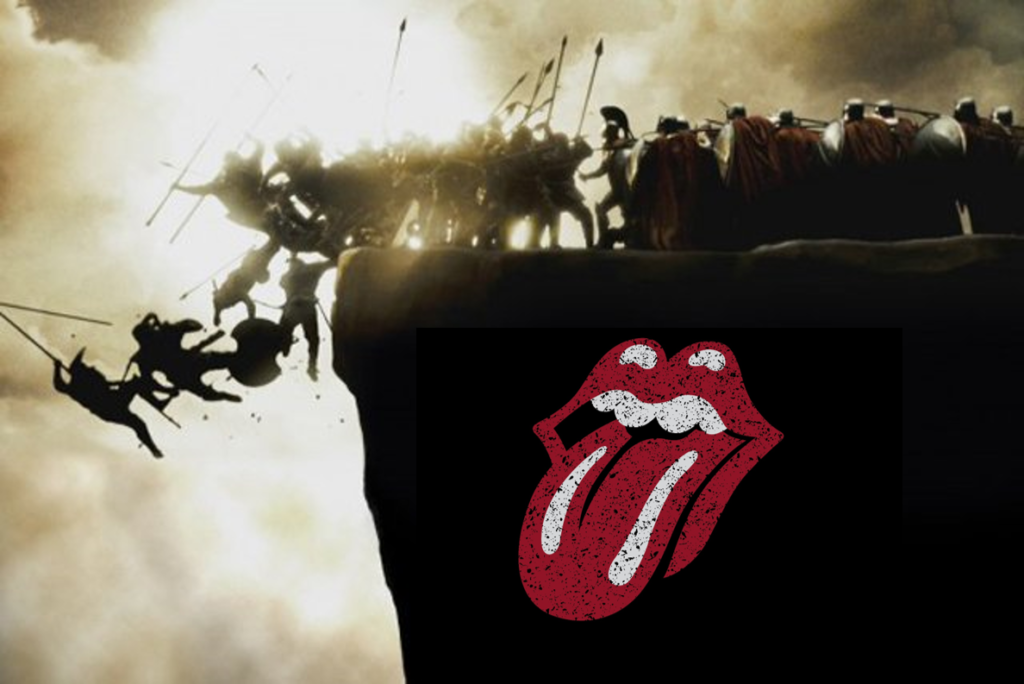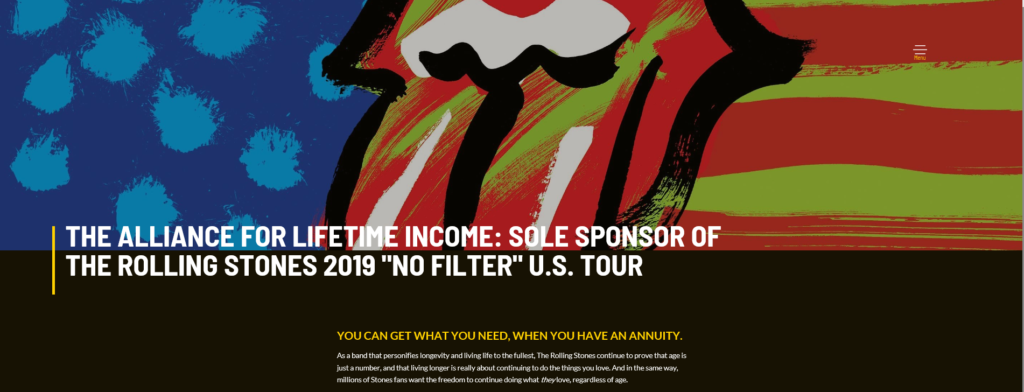
It’s been that kind of week for Classic Rock. Yesterday’s post pushed back against a CNN Entertainment story, warning about legendary artists rendezvousing with the Grim Reaper.
Today on Throwback Thursday, I’ve dusted off a post from the summer of 2019 that’s both timely and relevant. And it goes right to the heart of our conversations about the music, live performances, and aging rockers. Mick Jagger is the musical poster boy for resilience and resourcefulness. His quick recovery from aortic valve surgery amazed even his doctors.
In recent days, Bruce Sprinsteen (and manager Jon Landau) have come under fire for their Ticketmaster snafu, clearly a botched marketing plan. That kind of stuff never seems to happen with the Stones. They have found a way to somehow navigate all the speed bumps and sand traps they encounter along the way.
Right now, the band is coalescing around “Sixty,” the umbrella campaign celebrating six decades of straight-ahead rock n’ roll. At the end of this #TBT post, I’ve got a little surprise for you that is emblematic of how the band approaches and markets around these milestones.
It’s only rock n’ roll. – FJ
July 2019
It’s another year, and despite age and the odds, the Rolling Stones are back on tour, reaping millions, while entertaining huge multi-generational crowds. This, after Mick Jagger survived heart valve surgery earlier in the year. And let’s not forget the other members of the Stones are in their seventies as well. How Keith Richards has survived the decades is nothing short of a medical miracle.
Their “No Filter” tour is now making its way throughout the U.S., but one of the least talked about aspects of this musical sojourn is the tour’s only sponsor:
The Alliance for Lifetime Income
That’s right – an association that promotes annuities. In case your financial advisor hasn’t discussed this retirement tool with you, annuities are the most conservative of the investment options this side of a savings account, designed to provide a guaranteed income to seniors. The Alliance for Lifetime Income represents conservative names like Prudential, AIG, and Goldman Sachs.
The facts are the facts. The Stones’ core audience has inevitably moved older, on a parallel path with certain radio formats that emphasize the classics. In fact, the band and its new sponsor are not shying away from this reality – in fact, they’re embracing it.
According to the New York Times’ Jeff Sommer, the Alliance puts the Stones’ “sweet spot” in-sync with their own target: 45-72 year-olds with assets ranging between $75,000-$2 million.
Sommer quotes John Covach, a Stones expert and professor of music theory:
“When fans move with the musicians, there’s no reason that advertising shouldn’t move with them.”
That’s a profound statement that somehow has never permeated sales cubicles anywhere I’ve been involved in radio with gold-based formats.
And then Jean Statler, executive director of the Alliance for Lifetime Income, echoed that observation:
“(Stones fans are) not huge investors with really a lot of money; they are the middle class. They are people who have worked hard and accumulated some savings and may have the benefit of living longer than they had ever planned, and realize they may not have enough savings to last that life span.”
For the Stones, there’s no shame in going after these advertising and marketing dollars, while most radio salespeople representing formats like Classic Rock and Classic Hits wouldn’t be caught dead putting together sales pieces touting their 50+ audience demographics.
Yet, that’s where the money is going – or has gone. But if you work in radio, you know there’s a different reality, known as the “demographic cliff.” That’s what happens to audiences that “age out” of the coveted 25-54 demographic. The way conventional wisdom works in the radio business is that stations with significant listenership at 55 years of age or older, your brand is simply not marketable or salable to advertisers.
But there are some in radio who aren’t sitting still for this. In a compelling new presentation put together by KQRS programmer, Scott Jameson, he points out some important facts about aging demographics. Scott quotes a Forbes story that points out that Americans over 50 account for $7.6 trillion in direct spending – that’s more than 80% of household wealth. And in the same deck, Merrill Lynch predicts global spending of 60+ consumers will reach the $15 billion mark by 2020. Last time I checked, that’s two quarters from now.
It’s crazy when you think that it was the Stones that once preached “What a drag it is getting old.” And now, they’re reaping the financial benefits from a sponsor that’s converted another of its famous lyrics to create their new slogan:
“You can get what you want when you have an annuity.”
Not artful, but it makes its point.

The moral of this story?
The Stones don’t care about demographics. They care about putting butts in seats and marketing that audience to advertisers. They’re not the least bit ashamed to admit their fans have become long in the tooth. In fact, they’re embracing the phenomenon while cashing in on the opportunities represented by aging Baby Boomers.
In short, Mick, Keith, and the band are interested in what has always captivated them:
MONEY.
Broadcast radio should be, too.
There’s no one else to blame for leaving a lot of money on the table.
Earlier in the week, Mike Stern received an email from Spotify where he has an account. The subject line read “The Rolling Stones made you something special.”
Using a new slogan – “Fans First” – the band is now “offering” merch celebrating their “Sixty” campaign “for their top fans on Spotify.” (No, that’s NOT Mike Stern.)
And what follows is a merch offer. A commemorative shirt for $40, and “the bundle” (which includes the mug) for $48.
And the pop-up is an invitation (“Pleased to meet you….”) to join “The Lips Club,” a points fan organization that keeps building the email database – not matter where fans are below 25 or older than 54.
The Stones’ age agnosticism is on display once again, a lesson radio could learn from “The Greatest Rock N’ Roll Band in the World” (or so their marketing says.)
- Media And Technology In 2025: Believe It Or Not! - April 18, 2025
- In Radio, You Just Never Know - April 17, 2025
- The Secret To Making A Great Podcast (And Great Radio) - April 16, 2025





The Stones have this in common with Taylor Swift. They only care about their own fans.
Well, maybe there’s something to be said for that, Bob. After all, think of the stars who don’t appreciate their fans (usually until it’s over).
As the Stones have used pre-recorded tracks in Concert since at least the late 80’s Steel Wheels tour, nothing surprises me any longer.
Thanks, Randy.